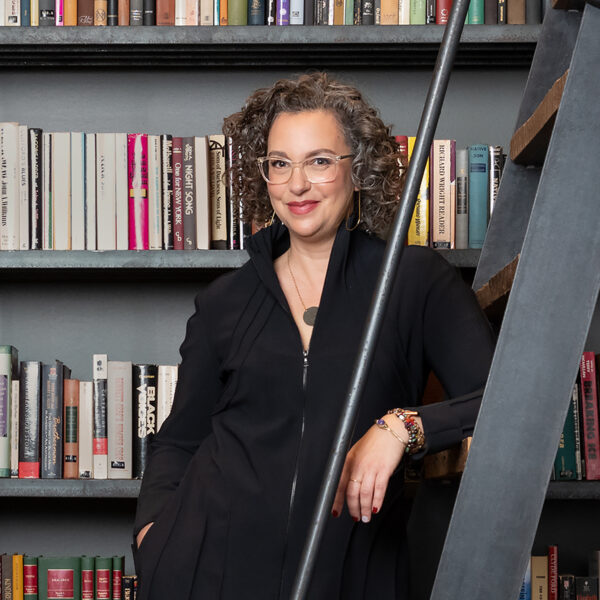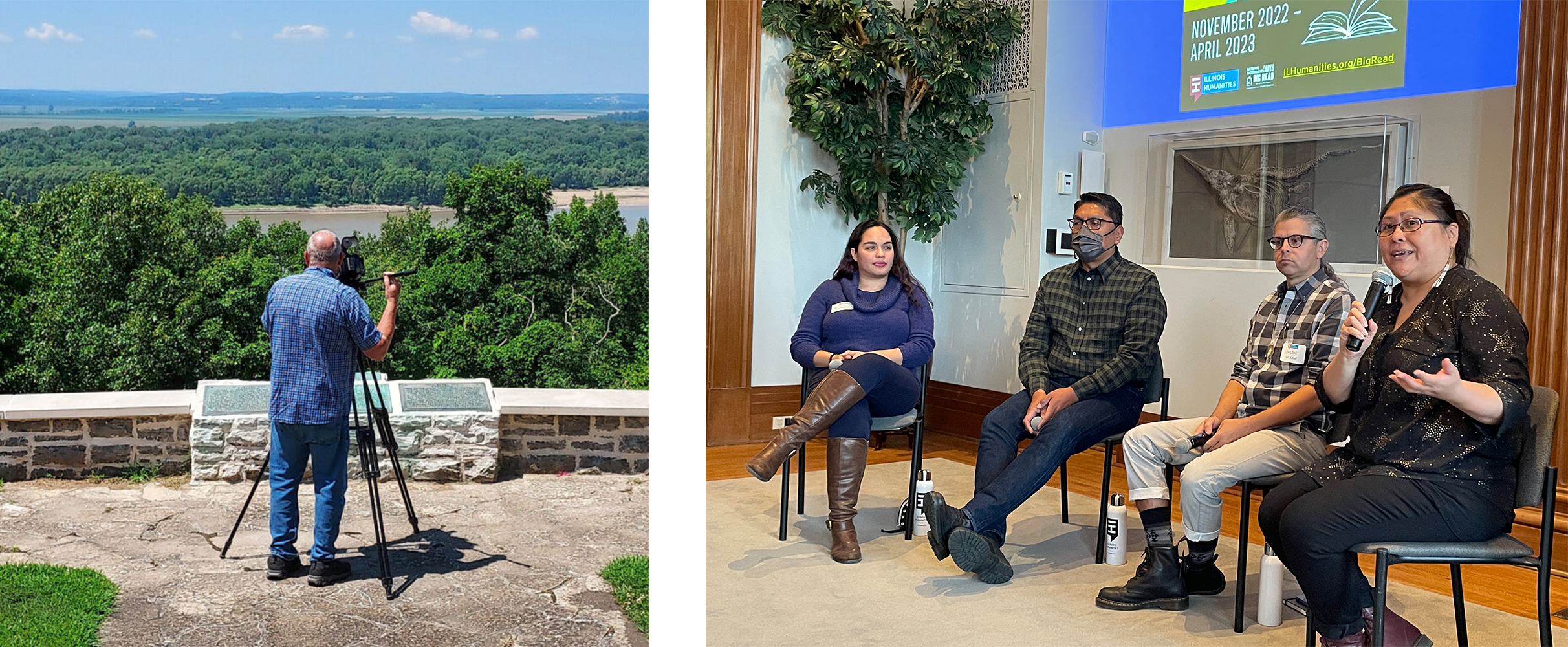
I watched the initial midterm election returns from Los Angeles, where I was attending the 2022 National Humanities Conference. I was with colleagues from sister councils gathered from across the United States. Though we serve different states and territories – and we face notably different challenges – all of us believe that a thriving democracy depends on the thing the humanities enables: engagement.
Terry Tempest Williams put it beautifully: “Democracy begins in the heart… Democracy depends on engagement, a firsthand accounting of what one sees, what one feels, and what one thinks, followed by the artful practice of expressing the truth of our times through our own talents, gifts, and vocations.”
Illinois Humanities works relentlessly to invest in, amplify, and create places and spaces that enable engagement.
How do we do this?
For one, we fund organizations that use the humanities to strengthen what we share, and to build bridges across disparate experiences and backgrounds. About Face Youth Theater, for example, was founded in Chicago with the belief that LGBTQ+ lives can provide a lens though which universal human experiences can be explored. “Not in Our Town” based in Bloomington, Normal, brings together a coalition – ranging from Connexion Latina, the McLean County Museum of History, and the NAACP – to use history, storytelling and collective action to stand against discrimination. In Grand Chain, Legacy Training, Inc. alleviates the “poverty of the mind, body and spirit” through, among other efforts, projects with artists and poets.
In addition to serving as a grant maker, we also create programs designed to bring people into conversation with one another. Some of these programs, like our recent series, Kaskaskia and the Pursuit of a More Perfect Union, ask explicit questions about democracy. The Kaskaskia series does this by looking at what the complex history of Illinois’ first capital can teach us about present-day challenges to finding unity. Other public programs, like Envisioning Justice RE:ACTION, ask us to look intensely at the present to galvanize us to imagine a radically different future.

If you’d like a way to get engaged with people you might not otherwise encounter, come be part of our free book club and event series, the NEA Big Read: Indigenous Stories. You can join a book group organized by Illinois Humanities’ partners or use our DIY toolkit to host one on your own. The books are free, and the conversations will be statewide. Sign up here.
It was an honor to launch Indigenous Stories this weekend in Chicago in conjunction with the Field Museum’s new exhibition, Native Truths: Our Voices, Our Stories. The program was followed by a conversation led by Illinois Humanities board member Debra Yepa-Pappan with three of the Native artists and consultants who helped to develop the exhibition, an extraordinary effort by Native advocates and museum staff to re-examine how long-established institutions like the Field can better practice self-reflection and truth-telling. As we honor Native American Heritage Month, the opportunity to be in community with Native leaders in this reimagined space was a particularly fitting way for us to be more engaged ourselves.
This Giving Tuesday, November 29th, I hope you’ll consider donating to Illinois Humanities and help support free, statewide programs that strengthen our state’s civic fabric. Your support of the humanities – through donations and participation – strengthens all of us. Learn more and donate at ILHumanities.org/GivingTuesday.
Want more stories like this in your inbox? Sign up for our newsletter to receive Illinois Humanities events, news, and stories from around the state.